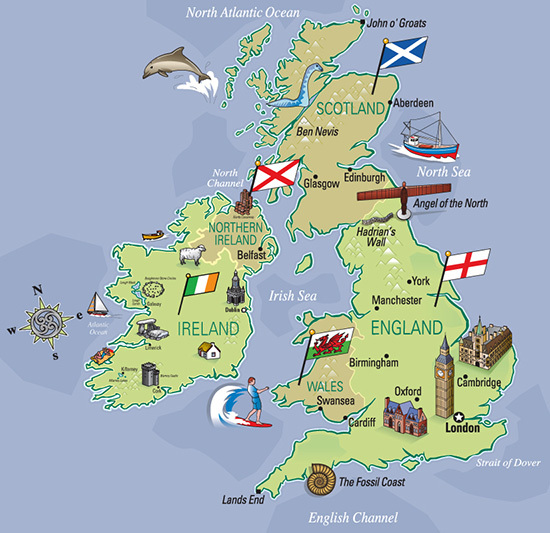British Pavilion

There are approximately 65 British nationals who are members of Auroville. We are not a large group compared to the more numerous French, Indian, German, etc, but the British presence in Auroville is felt – as indeed the British usually manage to make their presence felt, albeit the British Isles being a small land mass on the world map. Alan co-edits the community newspaper ‘AV Today', Judith works at the Matrimandir, Bobby runs one of the larger Auroville units, David N. works for Dreamcatchers, Paul B. heads the Botanical Garden, Glenn works in the Green Belt, Martin L. is a management advisor, etc. The other British Aurovilians are doing equally valuable work for Auroville.
The British Pavilion group was formed some time ago, and a sense of group identity emerged. We do not have frequent meetings, but in the times we have met the meetings have been constructive and fun. Besides which information can be disseminated within the group by email. A recurrent topic for discussion at our meetings has been ‘what is Britishness?'. In these discussions we have moved beyond the more superficial and romantic image of cricket and the village green to discover the deeper aspect of what constitutes Britishness. This we feel has brought us closer to the idea of the nation soul.
At the commencement of the group we questioned whether it was presumptuous of us to speak about the Soul of Britain when we are English, but we decided against breaking up the British Isles, and to aspire for our Welsh, Scots and Irish fellow Brits to come to Auroville and join our group. Sri Aurobindo in what he wrote on Wales, Scotland and Ireland did so mainly in the context of Britain. The quote that follows is also from The Human Cycle:
‘Still it may be said that, if the old principle of the association was wrong, yet the association itself leads eventually to a good result. If Ireland has lost for the most part its old national speech and Wales has ceased to have a living literature, yet as a large compensation the Celtic spirit is now reviving and putting its stamp on the English tongue spoken by millions throughout the world, and the inclusion of the Celtic countries in the British Empire may lead to the development of an Anglo-Celtic life and culture better for the world than the separate development of the two elements.'
Earlier on we drew up a concept for our Pavilion. However, we are all in agreement that we don't want to build yet – and anyhow we don't yet have the money to do so. But even if the money was there – there would be some hesitancy. David, our leading group architect, sees Britain as having a reputation in the field of architecture, but we have still to identify the ‘Britishness' we would like our Pavilion to express. And we feel strongly that the form the pavilion takes should convey to all who see it a sense of the Soul of Britain.
So we will now give more focus to the kind of activities we can do as a group. At a meeting some time ago a paper on ‘Education and the International Zone' was discussed, and we agreed that our activities should go in this direction. BBC documentary films on British landscape, gardens, history, were put forward as possibilities at the meeting. We decided the aim would be to communicate an understanding of Britain to the audience, and that the orientation for the activities would be educational. We plan to eventually take these activities to Auroville schools and educational institutes.
We are deeply aware that the face of Britain is now in process of rapid change - as indeed everywhere is. But now that we are visitors when we go to Britain we notice these changes more. We know that change is necessary to life - but the changes the world is experiencing now are on a scale which has not previously been experienced. We know also there has always been immigration to Britain and that immigration rejuvenates the life of the country, but again the scale of immigration is larger and different to past experience and many find it hard to cope with. But we believe that the Soul of Britain will become stronger as it evolves in response to these great changes. In this we feel greatly encouraged by the many very talented new British, especially by the news readers and commentators we see.
Finally, we are very grateful for all the support we receive from our friends in Auroville International UK. We hope our association grows in the years ahead and we look forward to building the Pavilion of Britain with them too.

Sri Aurobindo has written much on the social development of Britain and the qualities of its people. The three quotes below come from The Human Cycle:
‘…liberty-loving, insular and individualistic England …'
‘but it is only in England—the one country always where liberty has been valued as of an equal importance with order and not considered a lesser necessity or no necessity at all—that there was a successful attempt from an early period to limit the judicial power of the State and the monarchy…'
‘That is the reason why the supreme political instinct of the English people fixed, in the struggle with the monarchy, upon this question of taxation as the first vital point in a conflict for the power of the purse. Once that was settled in the Parliament by the defeat of the Stuarts, the transformation of the monarchical sovereignty into the sovereignty of the people or, more accurately, the shifting of the organic control from…'
1. Objectives
2. Proposed activities
3. Context: the European Agora
4.Facilities to be provided
5. Next steps
1. Objectives
To represent the special contribution of Britain to the “world-concert” of varied cultures, in the context of the “International University Centre” proposed by the Mother for the International Zone of Auroville.
(Background material: The Mother's texts, 2 quotations from Sri Aurobindo; International Zone concept.)
2. Proposed activities
- To host studies and research in English Language, Literature and Culture for the benefit of Auroville youth, Aurovilians, students from Pondicherry University and other educational institutions in the area, plus students from elsewhere in India and from around the world.
- To host teachers, students, cultural and technical experts, artists and performers from Britain to visit Auroville and share their expertise, as well as imbibing new stimuli offered by international context.
- To provide a vivid and lively experience of “Britishness” to tourists and visitors as well as students.
3. Context: the European Agora
It is proposed that the premises to house these activities, constituting the British Pavilion, should help to define the central “agora” which should form the focal point of the European area of the International Zone. This means that the planning and design of the pavilion would take into consideration the facilities being provided by other European cultures, with the aim of manifesting a very diverse and fascinating “townscape” of activities and buildings.
(Background material : The European Agora brochure.)
4. Facilities to be provided
To fulfil these objectives and house these activities it is proposed to aim to provide:
* Reading Room and Library
* Multipurpose hall for classes, video and slide-shows, talks, exhibitions etc.
* Bookshop
* Games Collection, with facilities for both playing and borrowing
* Accommodation for guests (students, visiting experts…) in a “British Inn”
* A beautiful shady garden with roses, where British teas can be served
* Space for playing games in small areas
* Small theatre (audience of 300-500) with a very special atmosphere
The main entrance to the British Pavilion should be on the Agora. The building can be several stories high (3 to 4) and have an urban character, with the garden and then the playing spaces behind, away from the square. It is envisaged to develop these facilities in phases. What should come first and the stages of development need further discussion.
5. Next steps
* To identify a person or group who will act as the focaliser(s) for the British Pavilion.
* To explore the possibility of involving British architectural teachers and students in design discussions and proposals.
* To put together an inspiring brochure (or series of brochures) to provide information about the International Zone of Auroville, the European area, and the British Pavilion.
* To keep members of AVI UK informed about our ideas and request their input and support.
